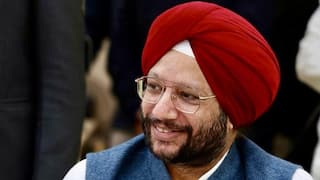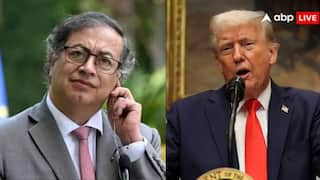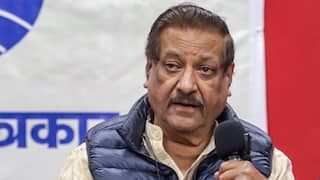'Modi Surname' Case: Supreme Court Stays Rahul Gandhi's Conviction, MP Status To Be Restored
Rahul Gandhi Defamation Case: The Supreme Court said had Gandhi been given a sentence of 1 year 11 months, he would not have been disqualified as MP.

In a big relief for Rahul Gandhi, the Supreme Court on Friday stayed the Congress leader's conviction in a defamation case over his "Modi surname" remark, restoring his status as a member of Parliament. The defamation case was filed by the BJP legislator Purnesh Modi.
Justice BR Gavai said the ramifications of Gandhi's conviction were wide since it would also affect the right of the electorates who elected him.
While the bench, also comprising Justice PK Mishra, noted that the utterances were not in good taste, it said no specific reason was granted by the trial judge to impose maximum sentence on Gandhi. The Supreme Court said had Gandhi been given a sentence of 1 year 11 months, he would not have been disqualified as MP.
"There is no doubt that utterances are not in good taste, person in public life is expected to exercise caution while making public speeches. No specific reason has been granted by trial judge to impose maximum sentence apart from a comment by this court. Had the sentence been even a day lesser, the provisions (pertaining to disqualification) would not have applied," Justice BR Gavai said.
"Taking into consideration these and that no reason has been given by trial judge for imposing max sentence, order of conviction needs to be stayed pending final adjudication," the court said.
READ | 'Victory Of Love Against Hate': Congress As SC Stays Rahul Gandhi's Conviction
During the hearing, senior advocate Abhishek Singhvi, appearing for Rahul Gandhi, said complainant Purnesh Modi's original surname was not 'Modi' and he adopted this surname later.
"Not a single person Gandhi had named during his speech has sued. This is a 'small' community of 13 crore people and there is no uniformity, or homogeneity. Those aggrieved in this community are only people who are BJP office-holders," Singhvi said.
Singhvi said the case has been treated as a serious offence involving moral turpitude. "This is non-cognisable, bailable, and compoundable offence. The offence was not against society, not kidnapping, rape, or murder. How can this become an offence involving moral turpitude?" he argued.
Singhvi said Gandhi was not a "hardened criminal" and there were many cases filed by BJP workers, but there was never any conviction.
Senior advocate Mahesh Jethmalani, appearing for complainant Purnesh Modi, said Rahul Gandhi had defamed an entire class out of malice. "This is an entire class defamed. It is an identifiable community," he said.
In an affidavit filed before the Supreme Court, Gandhi had refused to apologise for his Modi surname remark. "Using the criminal process and the consequences under Representation of People Act to arm twist the petitioner into apologising for no fault is gross abuse of the judicial process and ought not to be countenanced by this court," the former Congress chief said, PTI reported.
Gandhi said the case was "exceptional" as the offence was "trivial" and also highlighted the irreparable harm that has been caused to him after being disqualified as a lawmaker.
The Congress leader, in his affidavit, claimed there was no community on record going by the name "Modi" and thus, the offence of defaming the particular "samaj" does not arise.
"There is no Modi samaj or community established on record and there are only Modi Vanika Samaj or Modh Ghanchi Samaj existing. The complainant (Purnesh Modi) has also admitted that the Modi surname falls under various other castes. There is also the admission that Nirav Modi, Lalit Modi and Mehul Choksi all do not fall within the same caste," the affidavit said, PTI reported
Purnesh Modi sought the dismissal of Gandhi's appeal against his conviction, saying he defamed all those bearing the Modi surname, particularly people belonging to the 'Modh Vanik' caste of Gujarat.
What Is The 'Modi Surname' Defamation Case?
Rahul Gandhi was disqualified as Lok Sabha MP in March after he was sentenced to two years in jail by a Surat metropolitan magistrate's court earlier this year over his "why all thieves have Modi surname" remark.
Later, the Surat sessions court and Gujarat High Court declined to stay the conviction in the matter.
The former Wayanad MP had said "how come all thieves have the common surname Modi?" while addressing a rally in Karnataka during the 2019 Lok Sabha election campaign. The remark was a jibe at Prime Minister Narendra Modi over his last name which he shares with fugitive businessmen Nirav Modi and Lalit Modi.
Related Video
Uttarakhand News: Winter Chill Grips North India; Kedarnath Dham Covered in Snow





































